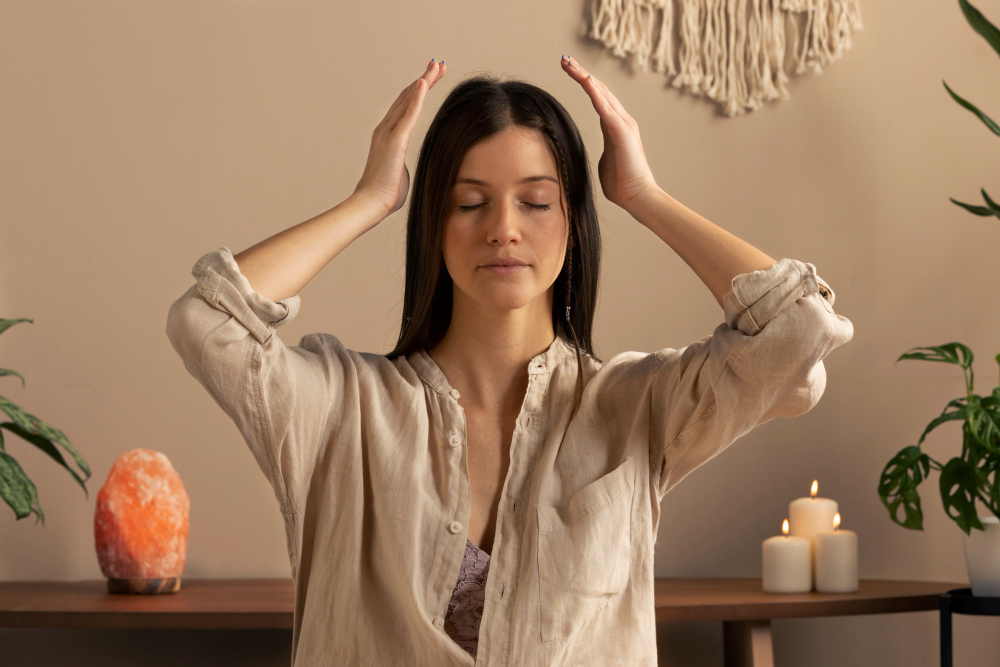Traditional Chinese Medicine (TCM) offers a unique perspective on stress and anxiety, viewing them as imbalances in the body’s energy flow. By addressing these imbalances, TCM can provide a holistic approach to managing stress and promoting emotional balance.
Understanding Stress and Anxiety in TCM
In TCM, stress and anxiety are often attributed to a disruption in the harmonious balance of yin and yang. Yin represents calmness and passivity, while yang represents activity and excitement. When this balance is disrupted, it can lead to various emotional and physical symptoms.
The Role of Qi in Stress and Anxiety
Qi, the vital life force that flows through the body, plays a crucial role in emotional well-being. When qi is stagnant or blocked, it can contribute to feelings of stress, anxiety, and emotional distress. TCM practitioners believe that by restoring the flow of qi, emotional balance can be achieved.
Common TCM Treatments for Stress and Anxiety
TCM offers a variety of treatments to address stress and anxiety, including:
- Acupuncture: This involves inserting thin needles into specific points on the body to stimulate the flow of qi and balance the energy system. Acupuncture can help to reduce stress, promote relaxation, and improve mood.
- Herbal Medicine: TCM practitioners use a wide range of herbs to address various health conditions, including stress and anxiety. These herbs can help to nourish the nervous system, calm the mind, and promote emotional balance.
- Qigong: This gentle exercise involves specific movements, breathing techniques, and meditation to cultivate and balance qi. Qigong can help to reduce stress, improve mood, and enhance overall well-being.
- Tai Chi: This martial art involves slow, flowing movements that promote relaxation and balance. Tai Chi can help to reduce stress, improve flexibility, and enhance overall health.
- Cupping: This involves placing heated cups on the skin to create suction, which can help to improve blood flow and reduce muscle tension. Cupping can help to relieve stress, pain, and anxiety.
TCM and Stress Management: A Case Study
Consider the case of Sarah, who was experiencing chronic stress and anxiety. She had tried various Western medical treatments without much success. After consulting a TCM practitioner, she was diagnosed with a qi stagnation in her liver meridian, which is often associated with stress and frustration.
The practitioner recommended a combination of acupuncture, herbal medicine, and qigong to address Sarah’s condition. Over time, Sarah noticed a significant improvement in her stress levels, mood, and overall well-being. The TCM treatments helped to restore the balance of qi in her body, promoting emotional harmony and resilience.
Key Benefits of TCM for Stress and Anxiety
TCM offers a holistic approach to managing stress and anxiety, with several key benefits:
- Natural and Non-Invasive: Many TCM treatments, such as acupuncture and qigong, are natural and non-invasive, making them suitable for people who prefer to avoid medication or surgery.
- Holistic Approach: TCM addresses the underlying causes of stress and anxiety, rather than just treating the symptoms. This can lead to more lasting results and improved overall well-being.
- Personalized Treatment: TCM practitioners tailor treatment plans to the individual needs of each patient, ensuring that they receive the most effective care.
- Complementary Therapy: TCM can be used as a complementary therapy alongside Western medical treatments, providing a more comprehensive approach to managing stress and anxiety.
TCM offers a valuable approach to managing stress and anxiety, providing a holistic and personalized approach to promoting emotional balance. By understanding the underlying causes of stress and anxiety within the framework of TCM, individuals can explore a variety of natural and effective treatments to improve their overall well-being.





